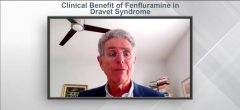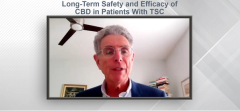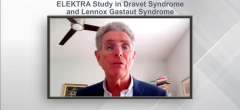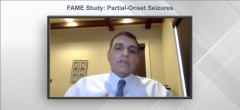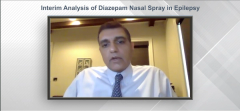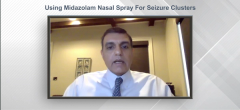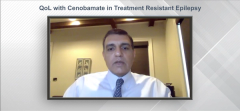
Interim Analysis of Diazepam Nasal Spray in Epilepsy
Episodes in this series

Examining the use of diazepam nasal spray in patients with epilepsy receiving concomitant maintenance benzodiazepines as presented in an interim analysis from a phase 3, long-term, open-label study.
Amit Verma, MD: The historical background of this study is that benzodiazepines are often used for emergency situations, in which patients are having acute, repetitive seizures. There are good data originally published by Fred Dreifuss in the New England Journal of Medicine in the 1990s in which they looked at Diastat [diazepam] vs placebo. They found that not only was seizure duration shortened, but the risk of having another seizure within the next 24 hours was decreased. That also resulted in fewer hospitalizations. There’s always been an interest in using benzodiazepines acutely for acute, repetitive seizures. In adult patients, unfortunately, Diastat has had limited use because of the delivery system. You have to give a rectal injection. Most adult patients are very nervous and wary of getting a rectal injection in public or even at home, and many caregivers are concerned about giving these injections.
Diazepam nasal sprayed was FDA approved this year under the trade name Valtoco. It’s a much easier delivery system. It’s a nasal spray, as opposed to a rectal injection, and so it can be easily administered by caregivers and even patients if they are feeling like they’re going to have a seizure that might result in a cluster. The issue with patients that have difficult-to-control seizures is that a large parentage of those patients are oftentimes on concomitant benzodiazepines as treatment. Whether it’s a drug like diazepam itself, clobazam, clorazepate, etc, they might be on other benzodiazepines as a mechanism of baseline treatment of their seizures.
This study was done to see what the efficacy of this nasal diazepam spray is in patients who are on concomitant benzodiazepines. The concern is that if someone is on concomitant benzodiazepines, then the medication may not be as effective, or a patient might have to use higher doses. Those were the 2 concerns from a clinical standpoint. If someone is on concomitant benzodiazepines, what is the adverse-effect profile? Are these patients going to be more sleepy or have other treatment-emergent adverse effects if they’re on Valtocoor this nasal diazepam in the presence of baseline benzodiazepines that the patients are on?
That was the reason for this trial. They enrolled 177 patients, and about 75% were taking a concomitant benzodiazepine at baseline. They found that the proportion of patients who required a single dose of the nasal diazepam was very similar, whether or not someone was taking concomitant benzodiazepines. That was the first thing that they found. The efficacy rates were very similar between the 2 groups, and efficacy was defined by risk of a recurrent seizure within the next 24 hours.
The treatment-emergent adverse effects were slightly higher in the patients who were on baseline benzodiazepines, but it was not much higher. The overall tolerability was quite good also. This is an important reaffirmation that if someone is on baseline benzodiazepines, then it was safe for them to receive a benzodiazepine nasal spray in that study.
Newsletter
Keep your finger on the pulse of neurology—subscribe to NeurologyLive for expert interviews, new data, and breakthrough treatment updates.

